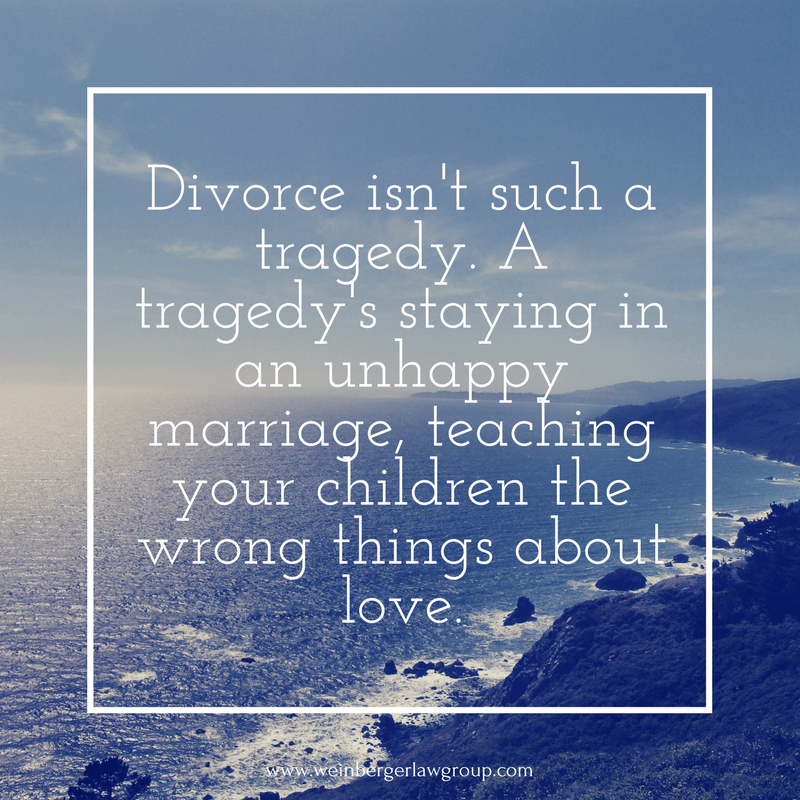How To End A Miserable Marriage Without The Guilt

Stuck in a miserable marriage? Even if you have both agreed to divorce, you may still be plagued by guilt – especially if you have children. Divorce is hard enough without beating yourself up about it. Here are some steps for moving on from a bad marriage with your self-respect intact.
Make sure you’ve done your part to make things work. Ambivalence will stall the divorce process, waste money, and confuse your spouse and your children. You don’t want to finalize your divorce only to regret that you didn’t do all you could to make things work. Before you file, take an inventory of your marital improvement projects. Did you go to couples and/or individual therapy? If you have mental health or addiction issues, have you been responsible for managing them? Have you focused on changing your own problematic behaviors instead of obsessing about all the ways your spouse has wronged you? If you can honestly answer in the affirmative to all these questions, then you can proceed with a clear conscience.
Life isn’t fair. Things don’t always go according to plan, even when we’ve put in our best efforts. You don’t have to like your circumstances, but struggling to accept reality will make you miserable. No amount of guilt will repair a marriage that needs to end, or prevent a child or a spouse from blaming you for breaking up the family. Accepting that your marriage wasn’t built to last will give you the emotional clarity you need to move forward.
Know the difference between guilt and shame. Guilt resides outside yourself; it means you feel badly for something you did. Shame is internal; it means you feel badly because of who you are. It’s much easier to work through guilt than it is through shame. Feeling remorse for poor behavior is a sign of mental health. But feeling shame is toxic; if you believe you’re inherently defective, there’s nothing you can do to change it. People with toxic shame often have issues with intimacy – how can I let someone know who I am when I’m this terrible person? – and addiction – I feel so awful about myself that I need to take/do something to excess to numb myself. If you’re wallowing in shame, consider seeing a therapist to help you heal.
Take accountability for your actions. Healthy guilt is your friend. It’s telling you what behaviors you need to change. Once you identify your part in problems, you can take steps to make things better. No, you won’t be able to time travel and fix the past, but you can adopt a more effective communication style with your spouse or manage your emotional reactivity so it doesn’t spill onto the children. Changing the way you behave will help alleviate the guilt you feel because you’ve decided to end your marriage. It can also pave the way towards having an amicable divorce.
Stay aware of how you behave. If you find yourself making poor choices – firing off an antagonistic email to punish your spouse, or dissing your spouse to your child – stop and change your behavior. Then detach from the outcome. You can’t control what your spouse does and to a large extent, you can’t really control your final settlement. But if you’re generally behaving with dignity, no matter the outcome, your guilt will dissipate and you’ll be able to move ahead without emotional baggage weighing you down.
Do you have questions about starting your divorce — or need help getting over feeling stuck? We can help. For answers to your questions and a clear strategy for moving forward, please contact us today to schedule your initial attorney consultation. Call us at 888-888-0919, or please click the button below.




